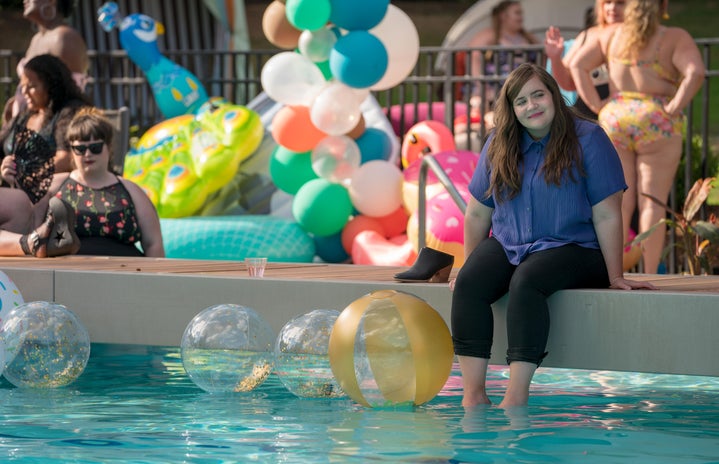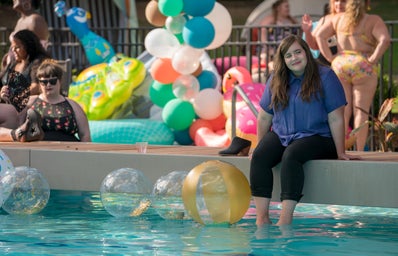When the Hulu show Shrill first aired in 2019, I truly felt I had been seen for the first time. The story follows Annie, a fat (/plus-size/whatever word you want to use, we’ll get into all that later) journalist trying to change the world but not her weight. I recently read the book Shrill: Notes from a Loud Woman by Lindy West, the book on which the show is based and I can truly say I found it life changing.
As a young, fat woman pursuing a degree in journalism, I see myself reflected when I look at Annie and Lindy. While Her Campus doesn’t have a comment section for anonymous men to make comments on my work and my body, I’ve still dealt with my fair share of trolls. Particularly in the world of online dating, the first message I received from one guy read “I heard big girls give great head” and plenty of “good, I didn’t even want to sleep with you anyways, you fat pig!” comments when I tell a sad, skinny white man that I don’t want to hookup with him after exchanging three messages.
In 2011, West did something absolutely unheard of at the time- she wrote an article where she self-identified as fat, going so far as to include a photo of herself along with her height and weight at the time. “Hello, I Am Fat” was written by West in response to fatphobic articles written by her boss at the time. In the article she talks about how people really aren’t concerned about your health, how she loves her body despite not fitting his idea of what women should look like and learning to love herself and the body she has.
Related: Combatting Fast Fashion as a Plus Size Woman
Learning to love my body has been quite the journey. A journey that I am still on and probably will be for the rest of my life. It was until recently that I began to feel comfortable using the word “fat” as a way to describe myself rather than a word to put myself down. But why is that? Why has society convinced us that “fat” is a bad word, that it’s offensive? That being fat equals being unhealthy, that it equals being undesirable? In the words of Lindy, “hello, I am fat.”
When I look back at the times I spent counting calories, crying in fitting rooms and just generally hating my body in general makes me SO sad. I’ve spent far too much time making myself smaller just to make others happy. It hasn’t been until very recently that I’ve started to see more bodies like mine in pop culture and I can only hope that this representation continues to improve so the next generation can love themselves more, regardless of the amount of space their body takes up.
Why is it okay to love yourself and love your body if you fit into society’s expectation of beauty but not when you fall outside of that? We applaud small women for preaching body positivity but shame fat women for doing the same. Why do so many people have an issue with fat people being happy in the body they’re in? The first person that comes to my mind is Whitney Way Thore, the star of TLC’s My Big Fat Fabulous Life and a social media influencer. I constantly see trolls in her comment section giving unsolicited advice and ranting about health, but if they knew anything about her they would know that (1) she has PCOS, which makes it incredibly easy to gain weight and incredibly difficult to lose it and, more importantly that (2) she is probably one of the most active people out there- she’s competed in weightlifting competitions, is a dancer, has her own workout class subscription program she runs with her personal trainer. It’s not our health you’re concerned about- it’s just the way our bodies look.
Related: 7 Body-Positive Influencers to Add to Your Feed ASAP
Loving yourself should not be seen as something radical, even in a fat body. When preaching body positivity, make sure you are not silencing fat bodies, disabled bodies or any other marginalized bodies. It’s okay to be happy with the body you are in, regardless of size, shape, color or ability.


